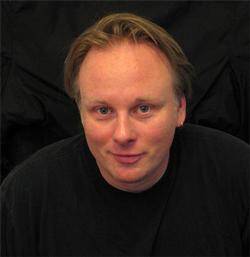Living in New York City in the 1990s, it was easy to know what the cardinal archbishop was thinking regarding current events. A distinct memory from that pre-Internet age was that it seemed as if The New York Post and The Daily News had regular features screaming out, “Card Sez…” followed by a provocative quote from Cardinal John O’Connor in bold letters on the tabloids’ front pages.
Over the past few years, I’ve been reminded of one quotation in particular. In response to the murder of an abortion doctor in Florida by an antiabortion extremist in 1944, Cardinal O’Connor commented: “If anyone has an urge to kill an abortionist, let him kill me instead. That’s about as clearly as I can renounce such madness.”
I remember being impressed by how deft and unequivocal the reaction was. He wasted no time condemning an abominable crime committed by another self-professed, pro-life Christian.
I’ve found myself referencing that quotation in conversations over the past year with Muslims and others about acts of terror by Islamic extremists. Where are those unequivocal voices in the Muslim world condemning these attacks? I’ve confessed frustration and confusion that the first reports of a Muslim response after the Paris attacks dealt with a protest against xenophobia instead of a call to communal mourning among Parisians of all ethnic and religious backgrounds.
In many of these discussions, I’ve heard numerous thoughtful and well-educated Catholics, Christians and Jews quietly express a similar dismay. “The enlightenment has yet to reach Islam” some have said. “It needs to go through its own Reformation moment akin to Christianity.” Others fear that Islam is incompatible with religious freedom and pluralistic democracy.
With these concerns as a backdrop, the Syrian refugee crisis can become a source of great anxiety for people of good will who are trying to reconcile their desire to welcome the stranger with their fear that this stranger might only want to destroy them.
“You can’t have a conversation without context,” Anthony Cernera, president of the Center for Interreligious Understanding, told me regarding our encounter with Islam. But the sad truth is that we have desperately little context for understanding Islam in the West. Even the most superficial Google search yields an overwhelming amount of evidence showing how vocal countless Muslim individuals and institutions have in fact been and continue to be in denouncing terrorism. Why aren’t we hearing it, then?
John Esposito, founding director of Georgetown’s Alwaleed Center for Muslim-Christian Understanding, cites astonishing research on the media that helps explain “why people of good faith don’t know” the reality about Islam. One study of nearly a million stories from U.S. and European media outlets between 2001 and 2011 found that in 2001, 2 percent of all those stories presented images of Muslim militants, while just over 0.5 percent presented stories of ordinary Muslims. By 2011, 25 percent of the stories dealt with militancy, while images of ordinary Muslims remained at 0.5 percent. The negative coverage has only increased since then.
If Muslim terrorists represent only a fraction of a fraction of 1 percent of the world’s 1.6 billion Muslims, this lopsided coverage looks like a type of hysterical fixation on the part of the media that ultimately does not serve our Muslim neighbors, or us, well at all.
Dr. Hussein Rashid, a Muslim American who teaches religious studies and consults on religious literacy, has also experienced a form of selective inattention even when the message is constructive. After the bombing attempt in Times Square in 2010, Dr. Rashid—who was born and raised in New York—and two Muslim colleagues were on every major network and cable TV outlet all day condemning the action. That night he gave a talk to 200 people and asked how many had seen the coverage. “Of the 190 people who claimed to be watching TV that day, how many of them remembered seeing us? Zero,” he said. “The narrative had already been set.”
The narrative in general regarding Islam in the United States and Europe has been set for quite a while. For all of our sakes, it is time to begin writing a more nuanced story.









Thanks for your comment, John. I'd be interested in seeing that statistic from The Spectator. Do you have a URL you can paste in here? Thanks for sending the Pew link, those are interesting statistics. I will have to look deeper but my guess is the polling on suicide bombing would be closely linked to feelings about Palestinians and their treatment by Israel. Certainly a complex issue.
The Pew stats also refer to Muslim countries. The reality is certainly different in the US where Muslims are the second best educated religious group behind Jews. I don't have much information for the UK.
This is not to say that there aren't issues that need to be addressed in terms of the West's relationship with Islam. There are but looking at Islam in its totality and making statements about that is like making statements on Christianity as if it's monolithic. If we were to put a Russian Orthodox Patriarch in the same room as a member of the Pentecostal Church of God Holiness in Appalachia that practices snake handling labeling them both as "Christian"--which they both profess to be--is about as descriptive and predictive as saying they are both "human."
John Esposito, from Georgetown’s Alwaleed Center for Muslim-Christian Understanding, has a wonderful book "The Future of Islam" (Oxford University Press) that really gets into great detail about the tremendous diversity in Islam as well as the presence of reformers within Islam today.